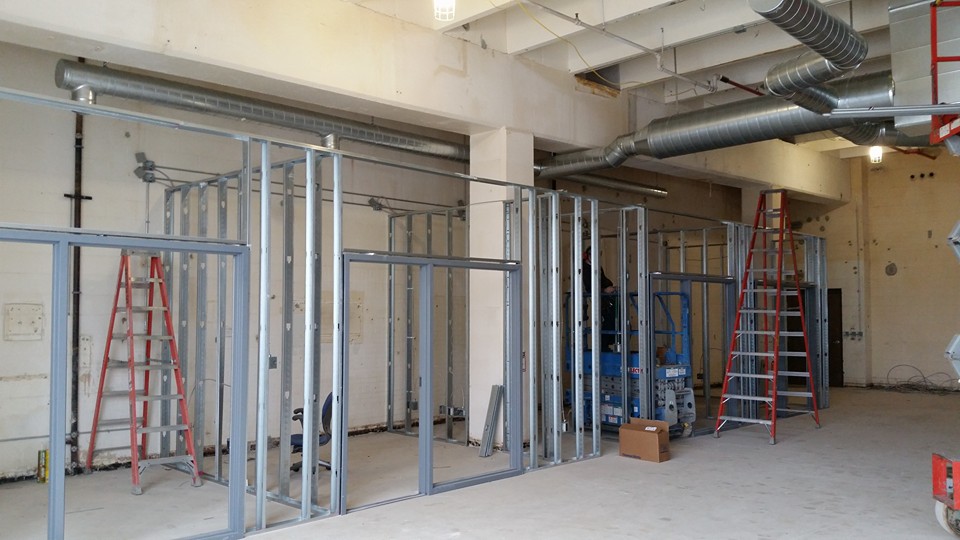StoryTeller's On The Move [video]
After more than seven years in Bloomington, the StoryTellers packed up our computers, our Emmys, and some very fond memories — to move to our brand...

Podcasts continue to be a great way to connect with people and get your message out. Newly released data from Q3 2022 shows that 18% of Americans aged 13 and older listen to podcasts every day. That’s up 20% from last year and has more than tripled since Edison Research started surveying podcast listeners in 2014.
If you are a business leader and are considering hosting a podcast to build authority and leverage your thought leadership, there are some important considerations to take into account. The first is gauging your own commitment to the concept. Podcasting is a long play and takes commitment. Do you have the bandwidth to manage the administrative work (topic ideation, scheduling guests, reviewing and approving produced podcasts before they go live), or will you be assigning that work to someone on your team? And do you have the right people on your team to manage a project like this, or should you hire an outside producer or editor?
Once you’ve decided that a podcast is a good fit for you and your team,it’s time to dig into the nitty-gritty of what it takes to launch a successful podcast. To help, we’ve developed this checklist to get off on the right foot.
Pre-Launch Podcast Checklist
When I worked in the TV news industry, we used to talk about viewer benefit. Think of it as what you want people to take away from your podcast, i.e., how is listening going to benefit them? There are thousands of great podcasts available for people to listen to. How are you going to stand out from the crowd? Think about:
Deciding how often you’re going to publish your podcast is a bit of an art, not a science. From all of the research that we’ve done, we’ve found that there’s no magic formula. The key here is consistency. If you say it’s going to publish daily, weekly, or monthly that’s great–be sure to stick to it. Really think about the work that goes into creating, publishing, and promoting the podcast, and set a schedule that is realistic and sustainable.
This is a podcast, right? So podcast format? Yeah, there are some variables to consider here, too.
This is another question that doesn’t have a set answer. There are great podcasts that are less than 10 minutes and great podcasts that last an hour or more. Podcast hosting site buzzsprout’s statistics show that 60% of podcasts are under 40 minutes and half of those are less than 20 minutes long. Here are a couple of questions to consider as you think about this:
Before you record a single sentence, create a roadmap to start laying the groundwork with your potential guests (if you’re doing an interview-style podcast). By getting the first few segments lined up, you’re really going to eliminate some of the stress of launching your podcasts, and in the process, you might answer some of your earlier questions about whether or not the topic is sustainable.
The name of your podcast should be pretty obvious–quirky, fun names sound like a great idea, but think about potential listeners–if they only see the name, will they know what the podcast is about? Once you have a list of potential names, hit the internet and start searching for other podcasts or companies that are using that name. You’ll want something that’s free and clear to avoid confusion or possible litigation.
Once you select the name for your podcast, you should make sure to secure the name on social media, and if the URL is available, you should purchase it as well.
7. Select A Podcast Hosting Service
Most podcast hosting services are relatively low cost or free to get started but remember, you get what you pay for. Your hosting service needs to be reliable since their systems will be storing all of your files and distributing your content throughout the internet.
Check out these options and pick the one that feels right for you and your budget.
Like selecting your name, spend some time working on the best artwork for your podcast. You want something that speaks to your topic, stands out, and is simple to digest visually. The requirements are all pretty much the same, no matter what distribution outlet you’re using. For simplicity, we recommend using Apple’s artwork requirements as your guide.
If you’re not a graphic designer and need some help here, there are a lot of great freelance design options online that won’t break the budget, like Fiverr or Upwork.
Distributing your podcast is going to take more than just posting the audio files with a service and waiting for listeners to find them. Instead, make a marketing plan to help you grow your audience and find success.
How you’re going to record your podcast will make a difference in the equipment that you need. If you’re going to be recording through your computer, you should invest in a good-quality microphone, headphones, and a good camera. Even if you aren’t going to be posting a video version of your podcast, being able to see your guests makes a big difference while you’re recording.
If you want to record each episode in person, you will still need microphones and headphones as well as microphone stands, a recording device, and maybe a small mixer. There are some great options available online, and if you’re going to be working with a podcast producer, they may already have the gear that you need.
There are many options for editing and adding music to your podcast. Several hosting services include a basic audio editing system in their online package for free. At the other end of the spectrum, there are paid tools like Adobe Audition or Avid Pro Tools, which offer the highest level of professional editing.
Now that you’re getting close to the launch date of your podcast, you’ll want to step into the “studio” and record a short trailer. This is a 1 minute (or so) explanation of who you are, what your podcast is about, and how often people will be able to download it. You’ll want this to be enticing, and remember to encourage people to subscribe to your podcast.
While this might sound silly, it is really important for getting your podcast set up in most distribution systems. You need an episode in the system before you can set up your RSS feeds and verify that everything is working right.
Life happens. Take some of the pressure off of yourself when you launch your podcast by having your first three episodes “in the can.” That means you want them fully recorded and edited and have the marketing materials ready before you launch the first episode online.
As we talked about earlier, the biggest key to successful podcasting is sticking to your publishing cadence. Preparing three (or more) episodes gives you the breathing room you’ll need in case a guest gets sick and cancels, or some other life event gets in the way of recording your next episode.
We hope this guide helped you think through whether or not a podcast is a good fit for you and your organization. Have fun implementing your plan and launching the podcast. We’d love to hear it!
![StoryTeller's On The Move [video]](http://www.storytellermn.com/hubfs/Blog_Assets_Images/StoryTellersNewOffice.jpg)
After more than seven years in Bloomington, the StoryTellers packed up our computers, our Emmys, and some very fond memories — to move to our brand...

When we close the door for the final time, turn in our keys and head to our new office space in St. Louis Park at the end of the month, a new era...

In today’s digital world, many companies are incorporating more video into their overall marketing strategy, but if they’re starting from scratch,...